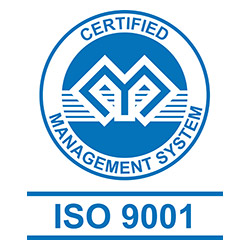







As a subscriber to Mondaq's Market Intelligence Reporting (MIR), please find below a summary of Haviaras & Philippou L.L.C's readership.
Our detailed reporting enables you to view all available reader information including: named individuals, company names and email addresses. We also provide other related information such as print requests, clicks to your profile or website, keywords used in search engines to locate your articles as well as many other features.
Please note that users viewing your content through some of our distribution partners, such as Factiva, Lexis-Nexis, Westlaw, Reuters, and Bloomberg, cannot be reported through the MIR system.
| Summary | Last 14 Days | Historic Total |
| Article Reads | 80 | 3,145 |
| Articles Published | 0 | 3 |
| Contact Activities/ Profile Clicks | 2 | 198 |
| Number of individual readers | 18 | n/a |
Your Recently Read Articles
Your top articles over the last 14 days based on readership. We show a maximum of 10 readership stats.
| Article Title | Date | Reader Contact/ Profile Clicks |
Article Reads | Total Reads (last 14 days) |
|
| Named Readers | Social Media/ Search |
||||
| Commercial Overview Of The Shipping Industry | 11 May 2015 | 28 | 85 | 97 | 182 (47) |
| The Scheme For The Naturalisation Of Investors In Cyprus | 27 April 2015 | 84 | 287 | 1100 | 1387 (46) |
| Cyprus Anti-Money Laundering Measures and The New Regulations For The Administrative Service Providers (ASP)Regulations For The Administrative Service Providers (ASP) | 23 June 2014 | 86 | 245 | 1331 | 1576 (45) |
Your Recent Readers
| Recent Readers (just a few showing here) |
Company | Job Title | Industry |
| John Owen | JLT Specialty Ltd | Consultant, Accounta... | Business & Consumer Services |
| Karima Saini | Independent | Consultant, Accounta... | Consumer Industries |
| Radish Singh | PwC | Consultant, Accounta... | Accounting & Consultancy |
| Stephen Sweeney | CBLG Law Network | CEO, Owner, Chairman... | Law Firm |
| John Galani | Genesis Holdings | CEO, Owner, Chairman... | Transport |
| Sam Bonilla | Rich-Port Consulting, LLC | Consultant, Accounta... | Basic Industries |
| Daniel Reiss | Automated Terminal Systems, Inc. | CEO, Owner, Chairman... | Transport |
| Lisa Knowles | Macquarie Group Limited | Inhouse Counsel, Law... | Banking & Credit |
| Lynda Marshall | US DOJ | ||
| Margaret McClennan | Bank Of America | Banker, Stockbroker,... | Financial Services & Insurance |
Interesting to Know - Mondaq's most popular articles on topics you write on.
Trending Articles
| 1. | Government, Public Sector: Cyprus Anti-Money Laundering Measures And The New Regulations For The Administrative Service Providers (ASP)
Haviaras & Philippou L.L.C |
| 2. | Government, Public Sector: CySEC Circular On Anti-Money Laundering Compliance Reports
Andreas Neocleous & Co LLC |
| 3. | Government, Public Sector: Publication Of The Deloitte And Moneyval Reports On The Effectiveness Of Cyprus's Anti-Money Laundering Regime
Andreas Neocleous & Co LLC |
| 4. | Immigration: Cyprus Citizenship By Investment - The Most Attractive Program In Europe
C.Savva & Associates Ltd |
| 5. | Immigration: Obtaining A Cyprus Citizenship-New Rules
Eurofast Taxand |
Law 132(I)/2023, which entered into force on 12 December 2023, amends the “Sale of Real Estate (Special Execution) Law” and introduces a mechanism designed to protect the buyer when the property is encumbered with charges such as a mortgage or a deposited contract. It enables the transfer of titles, under certain conditions, even if such encumbrances exist, provided that the buyer fulfills his contractual obligations.
The law's major innovations concentrate on three areas. First, the seller needs to include in the contract a recent search certificate identifying all registrable encumbrances. The certificate must be dated within five working days of signing; otherwise, the seller may face an administrative fine of up to €10,000. Second, the law requires the use of standard declarations (Types A, B, and C), which define the relationship between the buyer, seller, and mortgagor. Third, it regulates the payment of the purchase price into a bank account specified in Type A and grants the Director of the Land Registry the authority to transfer titles once the conditions of the declarations are met.
Type A requires the buyer to deposit a particular sum into the seller's authorized bank account, which obliges the mortgagee to issue a payment certificate (Type B) and release the mortgage. By contrast, under Type C, the buyer proceeds without this protection and assumes greater risk. If the mortgagee fails to comply, the Director may impose a fine of up to €100,000 and still proceed with the transfer.
The legislation does not specify a payment percentage. The generally used 95% represents market practice rather than a legal necessity.
Overall, the reform improves buyer protection and transaction security while placing additional responsibilities on sellers, banks, and lawyers, resulting in a more transparent yet demanding environment for real estate transactions.
Cyprus has introduced the Work/life Balance Law 216(I)/2022, implementing EU Directive 2019/1158 and granting new rights to parents and carers.
While the law enhances employee wellbeing, it also creates new compliance obligations for employers and the businesses that act early do not only avoid penalties but also showcase themselves as attractive, family-friendly workplaces.
Key provisions
The law expands on previous legislation on parental and family leave. Paternity leave now entitles fathers to two consecutive weeks of paid leave, regardless of marital status, with entitlement also applying in cases of stillbirth. Where the mother dies during childbirth or maternity leave, the father may take any remaining leave.
Parental leave grants each parent up to 18 weeks per child, with widowed or single parents entitled to additional weeks. Leave may be taken flexibly, either continuously or in parts of minimum 1 day, subject to employer acknowledgement, while parents may transfer a portion of their entitlement to each other.
Carer’s leave introduces up to five unpaid working days per year to care for a relative or household member with serious medical needs, supported by medical certification.
Force majeure leave provides up to seven unpaid days annually to deal with urgent family matters caused by illness or accident. Unlike the previous framework, these days do not need to be consecutive and are not restricted to dependants.
Finally, the law creates a right to request flexible working arrangements such as remote work or adjusted schedule. This applies to parents of children up to eight years old and employees with caregiving responsibilities, provided they have completed six months of employment. Employers must give written responses to such requests within one month and consider both business needs and employee circumstances.
Why it matters for employers
Non-compliance may lead to fines of up to €7,500, invalid dismissals, or reputational harm. Employers should see this as an opportunity to devise robust policies and family friendly practices so as to enhance recruitment and retention in a competitive talent market.
Next steps for businesses
To comply effectively, companies should review existing contracts, staff manuals and leave policies to ensure they reflect the new rights introduced to by the law. Clear internal procedures for handling flexible work requests must be established, supported by training for managers so they can respond appropriately. Just as importantly, employers should communicate changes to employees in a transparent manner in order to manage expectations and demonstrate commitment to a supportive workplace culture.
Looking ahead
Certain areas, such as refusals of flexible work requests, are likely to generate disputes. Test cases in the coming years will further shape employer obligations and companies that prepare now will be best placed to adapt smoothly to the new environment.
Our employment law team can assist in updating your policies, drafting compliant documentation/ manuals and ensure smooth implementation of the new law.
There is often considerable uncertainty surrounding the subject of surrogacy in Cyprus, particularly with regard to who may act as intended parents, who may serve as a surrogate, and which practices are permitted under the existing legal framework. In reality, the law establishes a clear and structured system, supervised by multiple competent authorities, designed to safeguard the integrity of this sensitive process and ensure the protection of all parties involved in bringing new life into the world.
Primarily, the key term to be explained is surrogate. A surrogate is the person that carries the embryo for the benefit of intended parents, who may be married couples, couples in a cohabitation agreement, couples in a permanent and stable relationship, and, since the 2023 amendment of Law 69(I)/2015 that frameworks the procedure of surrogacy, single women. Prospective parents, as well as the surrogate mother, must, in principle, have their permanent residence in Cyprus, with the reservation of exceptions provided for by law.
There are two forms of surrogacy: full (gestational), where the surrogate has no genetic link to the child, and partial (traditional), where the surrogate’s own egg is used. Only full surrogacy is permitted in Cyprus, where the genetic material is extracted by either the intended parents or donors.
Law 69(I)/2015 provides a three-step procedure in order for the surrogate pregnancy to be carried out. First, an application must be made to the supervising body for the surrogacy process, the Council for Medically Assisted Reproduction, for applicants must prove their medical inability to conceive and undergo psychological evaluation. The second step to requesting surrogacy is a court application for a surrogacy court order to be issued, that will ensure the intended parents’ legal recognition of the potential child retrospectively from conception. Last, there is the surrogacy agreement, namely a written contract, between the intended parents and the surrogate and her husband, if she is married, covering expenses and confirming the surrogate’s lack of parental rights over the child to be born.
Prohibited practices in Cyprus include commercial surrogacy, punishing fee-paid surrogacy services with imprisonment for a year and/or a fine up to €50,000. Any advertisement of this procedure is also forbidden, as well as partial surrogacy. Same-sex couples and single men are excluded from this medical practice, as highlighted in the recent case of a British couple whose arranged surrogacy with a clinic of ambiguous legality gained traction, leading to an official complained filed with the police and raising the concern of the Health Minister.
In the light of the above, it can be concluded that Cyprus offers a clear, court-supervised framework that protects surrogate mothers while providing intended parents a secure path to parenthood.
For years now a legal paradox stood in place: people were buying property but were unable to obtain title deeds due to preexisting legal encumbrances on the property, thus placing the purchasers in a state of legal limbo and creating the phenomenon of the so-called “trapped buyers”. Trapped buyers have long represented a social and legal sore point in Cyprus. These, as we previously explained, are purchasers who fulfilled all contractual payment obligations and yet remained without legal ownership of the property, because it was burdened by mortgages, prohibitions, or other encumbrances.
The crisis crystalized after a Supreme Court Decision (Civil Appeal No. 285/2018) struck down the previous legislative scheme, specifically Articles 44ΙΘ – 44ΚΒ of the the Transfer and Mortgage of Immovable Property Laws, deeming them unconstitutional, as those provisions were contrary to Articles 23 (protection of property) and 26 (freedom of contract) of the Cyprus Constitution.
In response to this ruling and mounting social pressure, the Ministry of the Interior and Parliament’s Legal Committee formed a working group. Their goal: to draft a reform that restores protection to buyers, while respecting creditor rights.
At last, in July 2025, adhering to the decision in the Civil Appeal No. 285/2018, Cyprus took a decisive legal step to resolve this chronic problem in its real estate market. The introduction of Amendment Law 110(I)/2025, which modifies the Transfer and Mortgage of Immovable Property Laws of 1965, offers a constitutionally compliant framework to break the stalemate.
A key technical change is the amendment to Article 44IΘ, which provides an automatic suspension of any parallel legal proceedings, while a trapped- buyer application is being examined, which shields applicants from foreclosure, enforcement or insolvency steps that would otherwise frustrate their application. Thus, the reform tackles the core obstacle: pre-existing encumbrances. Transfers can now proceed either with written consent from mortgage lenders, or, where consent is unjustifiably withheld, through a court-ordered release of the encumbrance. The law also empowers the Director of the Land Registry to examine applications submitted before the law’s commencement, but only where issuance of a title deed is feasible, setting an operational timeframe of 2 years and 8 months upon commencement. Failure to comply with said timeframe can lead to rejection.
Overall, Law 110(I)/2025 offers long-delayed clarity and a workable route to title-deed transfers for an estimated 9,500 affected purchasers, restoring confidence and stability to the Cyprus property market.
For further assistance and personalised, structured strategy on your terms please contact us on








1, Constandinou Skokou, 1061 Nicosia, Cyprus
7 Iolis, 7103 Larnaca, Cyprus
+357 22764001
57, Panepistimiou Av., Stoa Mandaka, 2nd floor, office 201, Athens, Greece
+302107252704